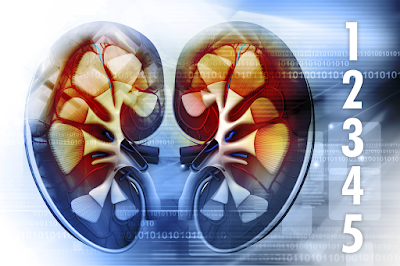Welcome to our in-depth discussion on chronic kidney disease (CKD) stage 3. It's important to understand that CKD is a serious condition that affects millions of people worldwide. In stage 3, the kidneys are moderately damaged, making it crucial to identify the causes, recognize the symptoms, and explore treatment options.
Let's dive into this topic with empathy and understanding, aiming to provide comprehensive information for those affected by this condition.
Causes:
Chronic kidney disease stage 3 can be caused by a variety of factors, including hypertension, diabetes, and autoimmune diseases. Hypertension, or high blood pressure, can put strain on the kidneys over time, leading to damage. When the blood vessels in the kidneys are damaged, the nephrons (small structures inside the kidneys that filter waste and excess fluids) do not receive enough blood supply to function properly.
Similarly, unmanaged diabetes can cause significant harm to the kidneys due to elevated levels of glucose in the blood. Over time, the high sugar levels can lead to damage in the tiny blood vessels within the kidneys. This can impair the kidneys’ ability to filter waste from the blood properly.
Additionally, autoimmune diseases such as lupus or vasculitis can directly attack the kidneys, resulting in progressive damage. In these conditions, the immune system mistakenly attacks the kidneys, leading to inflammation and potential scarring, which affects their function.
Symptoms:
Recognizing the symptoms of CKD stage 3 is crucial for early intervention and management. Common symptoms include fatigue, often resulting from anemia, a condition where the body lacks enough healthy red blood cells to carry adequate oxygen to the body's tissues.
Swelling in the legs and ankles (edema) may occur due to the kidneys' inability to regulate sodium and fluid levels in the body. Persistent itching can result from the buildup of waste products in the blood when the kidneys fail to remove them. Changes in urination patterns, such as foamy or bubbly urine, blood in the urine, or increased frequency, can be indicative of kidney damage.
Patients may also experience difficulty concentrating, decreased appetite, and muscle cramps, which are linked to the accumulation of waste products and imbalances in electrolytes and minerals.
Treatment:
Managing CKD stage 3 involves a comprehensive approach aimed at slowing the progression of the disease and preventing complications. This typically includes lifestyle adjustments such as maintaining a healthy diet low in sodium, potassium, and phosphorus, as well as regular exercise and weight management.
Dietary modifications are essential in managing CKD, as certain nutrients and minerals can build up to potentially harmful levels in the blood. Medications to control blood pressure and blood sugar levels are often prescribed to help prevent further damage to the kidneys and reduce the risk of heart disease.
In some cases, advanced treatments such as dialysis or kidney transplantation may be necessary as the disease progresses. Dialysis artificially removes waste products and extra fluid from the body when the kidneys can no longer perform this function effectively. Kidney transplantation is considered when the kidneys have lost nearly all their function, offering patients a chance for a better quality of life.
Conclusion:
In conclusion, chronic kidney disease stage 3 presents significant challenges for patients and caregivers. By understanding the causes, recognizing the symptoms, and exploring treatment options, individuals can proactively manage the condition and improve their quality of life.
It's essential to seek professional medical advice and support, while also making positive lifestyle changes to support kidney health. Together, let's raise awareness and support those affected by CKD stage 3, promoting a proactive and empathetic approach to managing this complex condition.

0 Comments
Post a Comment
Share your views